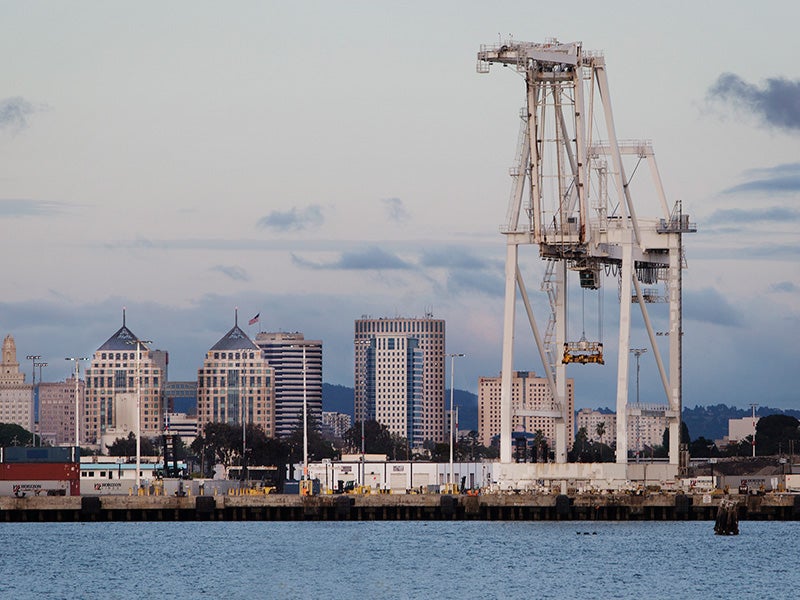Concerned Bay Area Residents, Environmental Groups Raise Alarm on Port of Oakland Development Project
Over 1,400 comments submitted to U.S. Army Corps of Engineers in response to draft Environmental Assessment
Contact
On Friday, Earthjustice, submitted comments on behalf of a broad coalition of groups, including West Oakland Environmental Indicators Project, Center for Biological Diversity, Sierra Club, Environmental Defense Fund, Pacific Environment, and West Oakland Neighbors, to the U.S. Army Corps of Engineers criticizing its Revised Draft Integrated Feasibility Report and Environmental Assessment for the widening of the Oakland Harbor Turning Basins. Concerned Bay Area residents submitted an additional 1,400 comments objecting to the Corps’ analysis.
In their comments, the coalition warns that the Army Corps’ draft environmental assessment fails to adequately consider how the expansion of the Turning Basins will impact the neighboring community of West Oakland or the freight corridors beyond it across Northern California.
“West Oakland is already overburdened with air pollution, which is why state and local governments are prioritizing emissions reduction planning and funding. Local residents like me are concerned that the Army Corps’ expansion project will invite more larger ships, which will mean more toxic pollution from diesel trucks and equipment operating at the Port,” said Ms. Margaret Gordon, co-director of the West Oakland Environmental Indicators Project and community activist. “The Army Corps is still operating in an outdated, growth-at-any-cost mindset, and is failing to value the lives of West Oakland residents or meaningfully meet with us to consider equity, health, and environmental justice.”
This project would facilitate increased visitation by ultra-large container vessels at the Port of Oakland. Each ultra-large vessel can carry more than 19,000 containers, which must be unloaded and transported via cargo handling equipment, drayage trucks, and rail through West Oakland and surrounding communities. Most of the Port’s equipment, such as cargo-handling cranes and forklifts, as well as drayage trucks, operate on diesel. As it’s burned, fine particulate matter pollution blankets the surrounding community with toxic air contaminants.
“In addition to our concerns about air quality impacts, environmental justice impacts, and a lack of genuine public engagement, it also appears that the Corps has not thoroughly analyzed the potentially significant ecological impacts of this project,” said Marie Logan, Earthjustice attorney. “The Corps does not disclose where 95% of dredged material will be placed and also fails to fully analyze the project’s greenhouse gas impacts. It also falls short in its consideration of how the expansion will impact local species that live in and around the San Francisco Bay, or how ultra-large vessels could harm the myriad marine mammals that live along our coastline and visit the Bay.”
Oakland is the latest in a series of harmful dredging and expansion projects the Army Corps has pursued that affect portside communities across the U.S., including in Houston, Texas, Norfolk, Virginia, and Long Beach, California.

Additional Resources
About Earthjustice
Earthjustice is the premier nonprofit environmental law organization. We wield the power of law and the strength of partnership to protect people's health, to preserve magnificent places and wildlife, to advance clean energy, and to combat climate change. We are here because the earth needs a good lawyer.